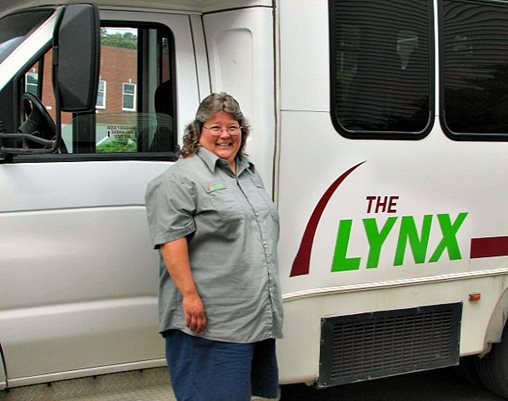When most of us think about comprehensive community development, typically top of mind are affordable housing, revitalized downtowns, job creation, and partnerships to improve access to quality education and health care. But staff at Penquis, a NeighborWorks network member and community action agency in Bangor, Maine, thinks transportation should be added to the list—especially in rural areas.

“You can build the best housing, you can build the best doctors' facilities, but if people are transit-dependent and they can't get there, it won’t work,” says Marcia Larkin, director of Penquis’ Lynx Mobility Services. “People often have to travel long distances in rural areas. We serve both Penobscot and Piscataquis counties in Maine, and Piscataquis is considered one of eight frontier counties in the nation. You know, in the American culture and environment, we have to be able to jump in our cars to go get our milk or bread. We get what we need when we want it that way. But there's so many people out there that don't have that luxury. What we offer at Penquis is the only backup they have.”
Exacerbating the situation is the fact that Maine is one of the poorest states; Piscataquis County in particular is its second-lowest-income county. “We take a lot of people to food pantries and churches so they can get some healthy food,” explains Larkin. And then there is health care. Whereas small towns in the area like Greenville may have a hospital, residents must travel as far as 75 miles for chemotherapy or radiation.
To learn more about the Lynx program and how Maine Cancer Foundation has played a roll read the full story on NeighborWorks America, click here.
To learn more about the MCF funded transportation grant, click here.
